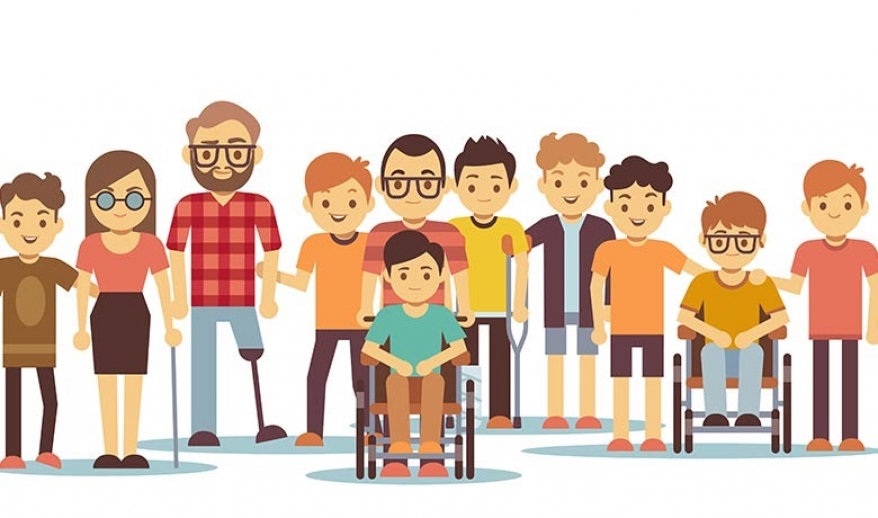The lack of awareness surrounding disability and its implications for early career researchers (ECRs) are amongst the most significant obstacles to building an inclusive working environment. Eurodoc is committed to address these two fundamental issues.
Disability: a complex, evolving concept
“Disability” is a rather controversial concept, which first emerged in the 19th century and has evolved greatly since then. Whilst usually based upon two core features, impairment and personal or social limitations, many different definitions of disability exist. Crucially, the way disability researchers approach the relationship between both features varies significantly, typically giving more emphasis to one of the two.
The medical model focuses on the biological impairment as the cause for disability, which is seen as “a physical or mental impairment of the individual and its personal and social consequences”. The social model, on the other hand, sees social barriers as the cause for limitations, and disability as “the relationship between an individual and her social environment” (Wasserman, et al, 2016; Oliver, 2013).
No matter which approach we prefer, the concept of “disability” encompasses a large number of people with different types of impairments and a wide variety of social barriers.
After the advent of the Convention on the Rights of Persons with Disabilities in 2006, a social-human rights model of disability was adopted. Disability has since been recognized as the result of the “interaction between persons with impairments and attitudinal and environmental barriers that hinders their full and effective participation in society on an equal basis with others” (United Nations, 2006).
This conceptual evolution has had an impact upon legislation and policies, but also on academia and research, as it called for a new research agenda regarding disability. This should be characterized by the prominence of emancipatory, transformative and participatory research, where persons with disabilities are “actors” (experts) and not “objects” of investigation.
These changes have paved the way for change in working environments, whilst universities have started taking measures to build more inclusive career paths (see the Report from the INVITED Project). Yet, researchers with special needs still frequently report lack of basic accommodations while doing their jobs (see this article from Scientific American).
The importance of widespread awareness
Implicit biases are deeply rooted in our way of doing things. For example, in its Position Paper on Inclusion, LERU acknowledges the potential discriminating effect of an evaluation system based on productivity, ability to get funding, and individual competition. In such a system, the personal opinion of the evaluators has a great weight and whilst their review can reflect definitive research merit, the evaluators’ personal biases, even if unconscious, can decide on a whole career (LERU, 2019, pp. 21-29). This can particularly affect ECRs, who still need to demonstrate their value in an industry focused on experience.
It is important to highlight that many of these conditions are invisible, such as during chronic pain, asthma, diabetes or depression. Moreover, some disabilities are treated as less problematic than they are in reality and general insensitivity toward these conditions provokes even greater exclusion.
Eurodoc believes that “diversity” equates to richness: being different means seeing things from a different perspective, giving creativity in a different way. This ability to imagine and to work differently is one of the most important assets for making research healthy and productive.
The next articles of this campaign will discuss how ECRs’ careers are impacted by disabilities, which good practices are in place and which ones should be adopted. Follow #Eurodoc4Inclusion!
As Eurodoc, we want to help all ECRs tear down the barriers that make their career difficult and frustrating: please write an email to equality@eurodoc.net if you are an ECR with special needs and want to be actively engaged in our activities or share your experience with us.
Eurodoc Equality Working Group
Special thanks to (in alphabetical order): Marilia Conti, Luciana Forti, Sara Pilia (WG Coordinator), Andreea Scacioc, Mathew Tata for their contributions to this article.

